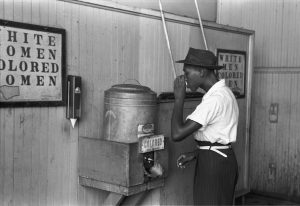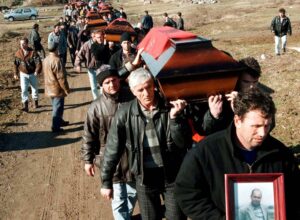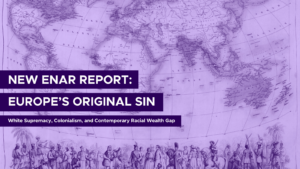Jazz McKinney started as executive director of the Grand Rapids Pride Center on March 15 after previously serving as the organization’s interim director and chair of its Transgender and Gender-Non-Conforming Committee. Originally from Detroit, McKinney — who uses they/them/their pronouns — is a Grand Valley State University graduate and longtime Grand Rapids resident.
McKinney’s main goal is to make the Pride Center a more inclusive space for all members of the LGBTQ community by following through with the organization’s Community Accountability Plan that was created last year to address claims of racism within the organization. McKinney spoke with MiBizabout their plans for the organization and serving younger and more diverse generations.
What is your main focus as you start in this new role?
My vision is to truly fulfill our mission, which is to serve all of our LGBTQ community, not just white people. My vision is to make the Pride Center more accessible to people of color and people with disabilities, and making it more accessible even with the internal things. https://568067f1bfd89f951571548c1179f4f3.safeframe.googlesyndication.com/safeframe/1-0-38/html/container.html
Within the LGBTQ community, there also tends to be phobias around some of the identities, like biphobia and transphobia, so I’m really just trying to bring us all together as LGBTQ people and make sure we’re serving our most marginalized population.
Can you discuss the Community Accountability Plan and any progress that has been made since it was adopted nearly a year ago?
Our goal when we put the plan together was to actually complete all of those goals. I really believe in making sure things are sustainable. It would have been really easy for us to plow through that list and say, ‘Yes, we completed that,’ but there are things that are still pending on our list because even though we’ve been working on them, they’re not done.
Companies and economic development organizations have placed greater emphasis on diversity, equity and inclusion in order to attract talent. How important is it to members of the LGBTQ
community that where they work or live is inclusive of their identity?
I think it’s huge. Even in the last month I’ve had three people reach out to me asking if I could help find them an employer that is LGBTQ-freindly.
I can’t hire the entire LGBTQ community to work for me — we have to make sure those other places are a good fit and a lot of that is diversity of thought. If you don’t hire any LGBTQ people, then it’s not always that the people who work for you are neccessarily anti-LGBTQ, they just might not have been exposed to it so they don’t know the nuances.
I remember applying to a previous job that I had and they were super excited about my LGBTQ history and then I went to sign my employee paperwork and it didn’t have my gender listed. They had a face palm moment and didn’t realize that, even though they called themselves allies and an LGBTQ inclusive workforce.
What else could organizations and companies be doing to be more inclusive of the LGBTQ community?
Outside of policy, I would also just say education. Terminology and how you treat people and your definition of family. A lot of employers have a bereavement policy that says you can only take bereavement leave if your spouse or immediate child of those people dies. Gay people were only allowed to marry in 2015.
Most employers have LGBTQ people in their arena and they might just not know it because maybe they haven’t made the space comfortable enough for people to come out. It’s about having the opportunity and having that space, so employee resource groups can help with that as well.
Do you think the way people use the Grand Rapids Pride Center is changing? What do you want it to look like?
The younger generation is becoming even more diverse and inclusive, even in terminology. When I was growing up, you were either gay or you were lesbian, whereas now even as executive director, I’m still constantly learning new terminology.
These young kids are learning more about intersectionality, too. People used to think you had separate issues as a Black person and as an LGBTQ person. All of those different things can and do interact with each other.
That’s why I took over, to really push us in that direction of the intersectionality piece.




